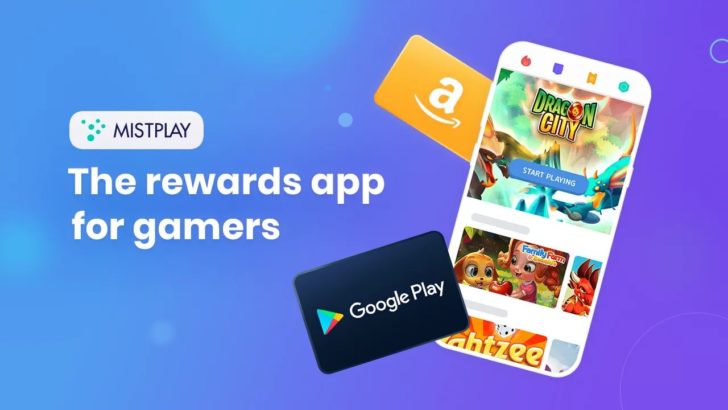Play to earn rewards: the new frontier of online gaming and earning
Play to earn rewards: the new frontier of online gaming and earning
Blog Article
Why Play-to-Earn Incentives Are Changing the Method You Play and Earn
The introduction of play-to-earn versions signifies a noteworthy shift in the gaming landscape, welcoming players to check out not only the amusement value of games yet likewise their prospective as income-generating platforms. This paradigm provides varied benefits, consisting of possession possession through blockchain modern technology, which fundamentally changes player involvement and financial investment. Nonetheless, as this model evolves, it provides an one-of-a-kind set of obstacles that could affect its sustainability and charm. Comprehending these dynamics elevates significant concerns about the future of pc gaming and the effects for both players and designers alike.
Emergence of Play-to-Earn Models
Recently, the pc gaming sector has experienced a significant improvement with the introduction of play-to-earn versions, basically altering just how gamers engage with electronic settings. This cutting-edge approach enables players to gain concrete benefits with their in-game activities, creating a change from traditional gaming standards where pleasure and competitors were the main motivations.
Play-to-earn designs leverage blockchain technology and non-fungible symbols (NFTs) to provide players with possession of in-game possessions, which can be traded or cost real-world currency. As a result, gamers are incentivized to spend time and effort right into games, promoting a feeling of agency and economic chance. play to earn rewards. This shift has attracted a diverse player base, including those who might have previously checked out gaming as a simply leisure activity
Numerous platforms have actually emerged, showcasing effective applications of this version, such as Axie Infinity and Decentraland. These systems have not just generated substantial revenue yet also sparked discussions around the sustainability and ethics of such financial systems. As play-to-earn models continue to advance, they promise to redefine the relationship between players, developers, and the wider digital economic situation, leading the way for a new era in gaming.
Advantages for Players
As gamers engage with play-to-earn models, they unlock a range of advantages that extend beyond plain home entertainment. Unlike typical gaming, where gamers spend time and money without concrete returns, play-to-earn systems permit players to make copyright or in-game assets that can be transformed to real-world worth.
In addition, play-to-earn models advertise area structure amongst players. Gamers typically work together to attain common goals, therefore cultivating social connections that enhance the general experience. This sense of neighborhood can result in participating gameplay, where gamers share methods and sources, boosting both individual and team accomplishments.
Furthermore, these models can equalize access to video gaming by enabling gamers from diverse financial histories to profit economically. By taking part in play-to-earn ecological communities, people can get abilities and expertise regarding blockchain technology, additional broadening their profession opportunities in the burgeoning digital economy. Inevitably, the advantages for gamers expand well past gameplay, influencing their social, financial, and instructional landscapes positively.
Difficulties in the Environment
While the play-to-earn community offers considerable possibilities, it is not without its difficulties. Variations in value can discourage possible players that seek steady revenue streams.
One more obstacle is the risk of scams and illegal plans that can plague the ecosystem. Gamers may experience misleading platforms assuring high rewards yet ultimately resulting in financial loss. Making sure trust fund and safety is important for the long-lasting viability of play-to-earn designs.
Moreover, additional reading the ecological influence of blockchain gaming can not be overlooked. The power consumption related to mining and deal handling increases moral questions concerning sustainability. Video game developers have to discover a balance between fulfilling players and minimizing environmental impacts.
Lastly, the regulatory landscape is still evolving, posing prospective threats for designers and gamers alike. Uncertain legal structures can prevent advancement and restrict the development of play-to-earn ecosystems. Attending to these challenges is essential for realizing the complete potential of this transformative video gaming paradigm.
The Role of Blockchain Innovation
Blockchain technology serves as the backbone of the play-to-earn environment, attending to a lot of the obstacles formerly laid out. By using decentralized journals, blockchain makes sure openness and top article security in purchases. Gamers can confidently make and trade in-game assets, understanding that ownership is proven and exempt to manipulation.
Tokenization of assets plays a vital duty, giving players real ownership of their in-game products, which can be bought, offered, or traded on different industries. This urges a lively navigate here additional market, where players can monetize their skills and time purchased the game.
Moreover, blockchain technology makes it possible for interoperability in between different games and systems, permitting players to bring their properties across numerous ecological communities. This adaptability not just enhances individual experience however likewise advertises a more inclusive video gaming setting, inevitably reshaping the landscape of pc gaming and earning.
Future Trends in Video Gaming
The video gaming sector gets on the verge of a transformative development, driven by arising innovations and changing gamer assumptions. As play-to-earn versions gain traction, gamers are significantly seeking immersive experiences that mix amusement with concrete incentives. This change is motivating designers to innovate, concentrating on developing interesting gameplay that promotes neighborhood and communication.
One notable trend is the combination of virtual reality (VIRTUAL REALITY) and increased truth (AR), boosting the video gaming experience by offering much deeper immersion and interactive settings. Additionally, innovations in expert system are making it possible for much more sophisticated non-player characters (NPCs) and flexible gameplay, tailoring experiences to private gamer choices.

Conclusion
To conclude, the play-to-earn version is dramatically transforming the pc gaming landscape by allowing gamers to obtain real-world worth from their in-game activities. This paradigm shift not just boosts player engagement and investment however likewise elevates difficulties that should be dealt with to ensure sustainability within the ecological community. As blockchain modern technology remains to promote ownership of electronic possessions, the future of gaming guarantees further advancement and possibilities for players across diverse backgrounds.
Report this page